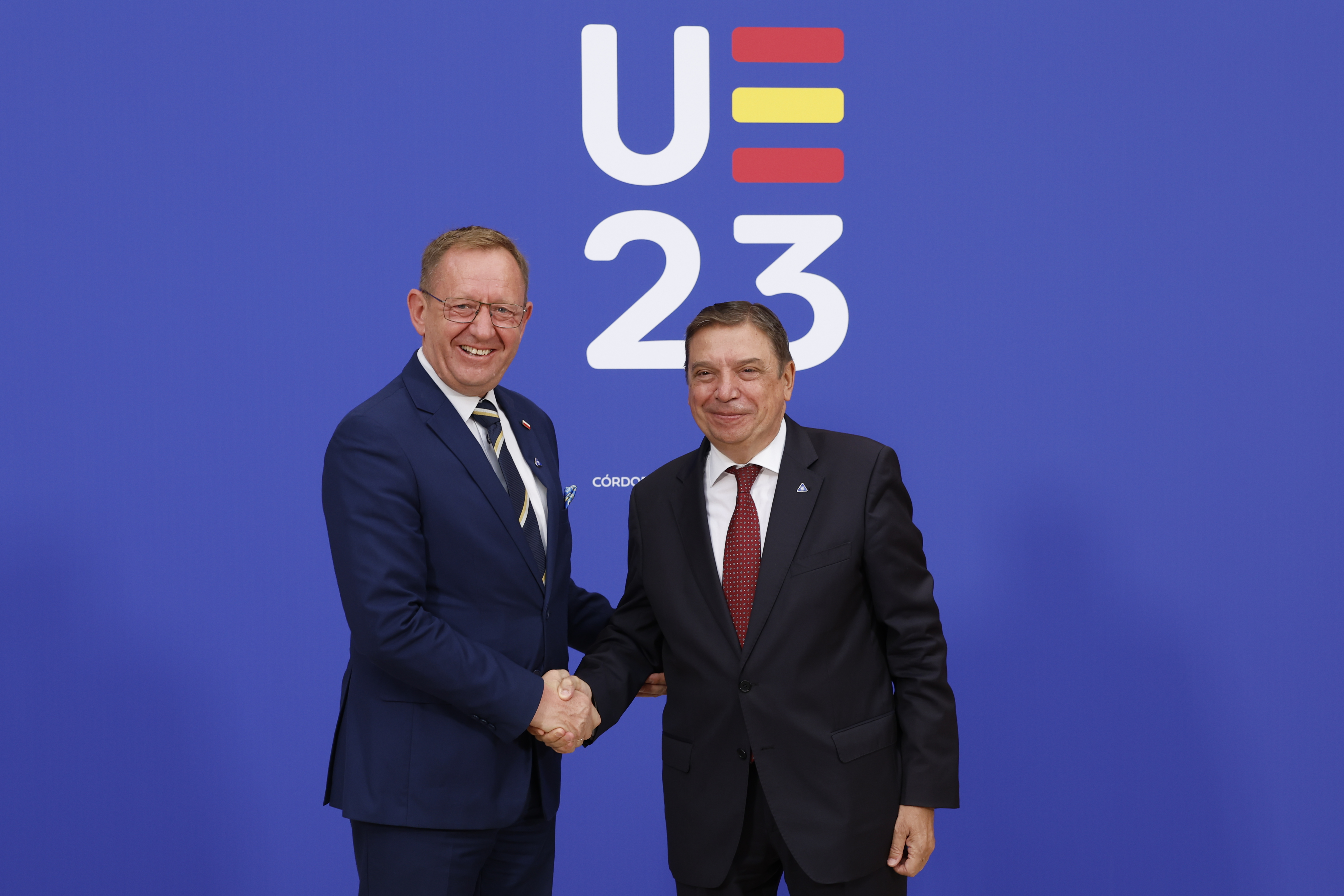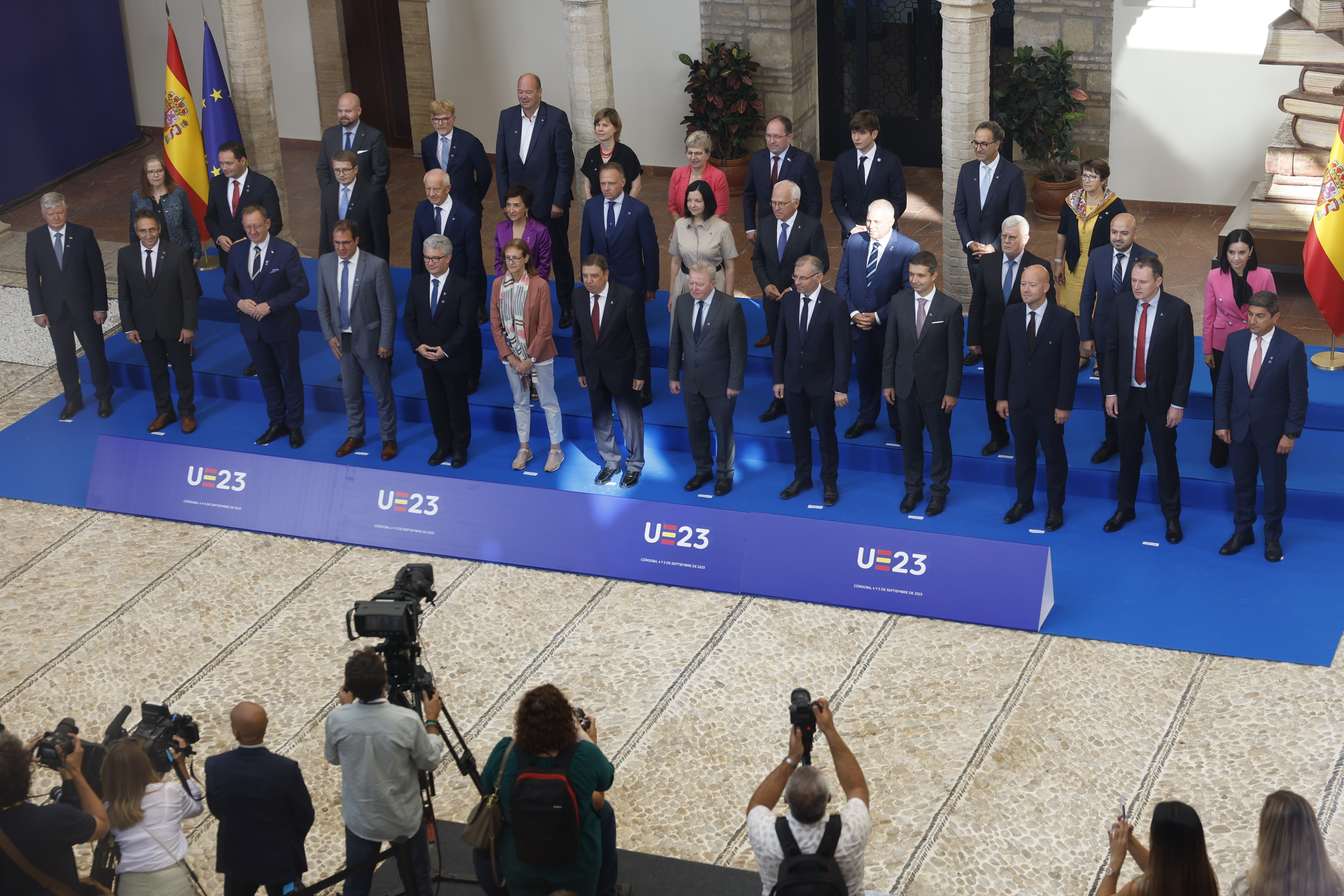The Informal Meeting of the EU Agriculture Ministers
05.09.2023
The EU Agriculture Ministers discussed the role of technologies in the agri-food sector during their informal meeting in Cordoba on 4-5 September 2023. The Polish delegation was headed by Mr. Robert Telus, Minister of Agriculture and Rural Development. Together with the frontline states, Poland called on the European Commission to take action to address the huge problems on the agricultural markets which had been caused by the war in Ukraine.

Topics of the meeting
The Informal Meeting of the EU Agriculture Ministers addressed the most important initiatives intended to promote technologies for the purposes of the double – green and digital – transition of the agri-food sector. The Ministers also talked about the benefits of the use of new genomic techniques for agriculture.
The aim of the Spanish Presidency was to stress the key role which would be played by technologies in the agri-food sector – in supporting the transition to its more sustainable and productive model, adapted to the challenges posed by climate change.
Green and digital transition of the agri-food sector
Minister Robert Telus agreed with the opinion that scientific research and innovations were crucial for the development of new technologies and innovative solutions. He stressed the need to support and promote supranational initiatives. He said that support in this scope should be provided by the actions carried out as part of Horizon Europe, as well as European partnerships and initiatives, such as the international BIOEAST initiative.
“Another example of initiatives which should be supported and promoted on a wider scale are practical demonstrations of various technological solutions, based on agricultural holdings with the participation of scientists and agricultural advisors,“ the Minister added.
Minister Robert Telus also informed about the initiatives launched in Poland; specifically, about the establishment of the Network for Innovation in Agriculture and in Rural Areas, and the appointment of innovation brokers at agricultural advisory units. He informed about the establishment of the e-DWIN platform to support the development of advisory e-services and the building of an innovative system for satellite-based monitoring of crops. The Minister added that, as part of Agriculture 4.0, support was planned to ensure agricultural producers’ greater involvement in the use of new technologies.
New Genomic Techniques
Minister Robert Telus informed that the proposals of the European Commission concerning New Genomic Techniques (NGTs) were interesting, but very controversial.
Minister Robert Telus noted that the plants obtained by means of NGTs were not genetically modified, since they did not contain any alien DNA. He acknowledged, however, that for the purposes of a safety assessment, they continued to be treated as a new category of genetically modified plants.
“Therefore, the question is whether agriculture will enjoy benefits from the results of research using new genomic technologies in the situation where NGT plants will be treated in many respects as GMOs,” Minister Robert Telus asked.
The head of the Polish delegation said that NGT technologies were developed mostly outside the European Union. He added that on the global market there were few NGT products, while many products were at the stage of advanced research work and preparation for implementation. The Minister stressed that, in light of the simplified authorisation rules proposed for NGT plants, products from outside Europe would relatively soon be placed on the European market.
In the opinion of Minister Robert Telus, there is the concern that patented NGT products will restrict farmers’ right to freely use seeds and limit the breeding programmes and competitiveness of small and medium-sized seed companies.
Minister Robert Telus informed that another doubt concerned the purity of organic production and the continued ability of consumers to exercise their right to choose, since it would not be possible to detect and identify all NGT products at a laboratory.
“There will be no obligation to label foods and feeds produced from NGT plants,” Minister Robert Telus added.
The head of the Polish Ministry of Agriculture stated that further work on the regulations was needed in order to work out an unambiguous Regulation posing no doubts as to its interpretation and that a public discussion and education were also needed.
Cereal imports from Ukraine
Minister Robert Telus pointed out that the European agriculture faced many challenges today. Farmers have to cope with huge problems on the markets of cereals, soft fruits and milk, frequent droughts or inundations, as well as high fertiliser and energy prices. Therefore, together with the frontline states, Poland has called on the EU to take action to build solidarity lanes which would operate appropriately.
“The important date of 15 September is approaching. The EC must ensure the conditions for products from Ukraine to be exported to other EU countries and, first of all, outside Europe. This is an important moment for the EU, for building genuine solidarity of the whole EU and with Ukraine. The cereal transport across the borders of the countries bordering on Ukraine alone does not represent a correctly operating solidarity lane,” the Minister said.
The Polish delegation pointed out that the proposed subsidies to transit were one of the solutions which could help Ukrainian products to be shipped further, beyond the frontline states. Investments in infrastructure are also crucial, as they build solutions for the future. Care should also be taken to ensure the flexibility of the list of products subject to bans, since in certain countries e.g. sunflower is needed, while in others, e.g. Poland, raspberry imports pose a threat.
“We should discuss it and take data-based decisions. There is a need for European solidarity and I am asking for it. So that we can take decisions which are beneficial for the solidarity and future of the EU,” Minister Robert Telus stated.


